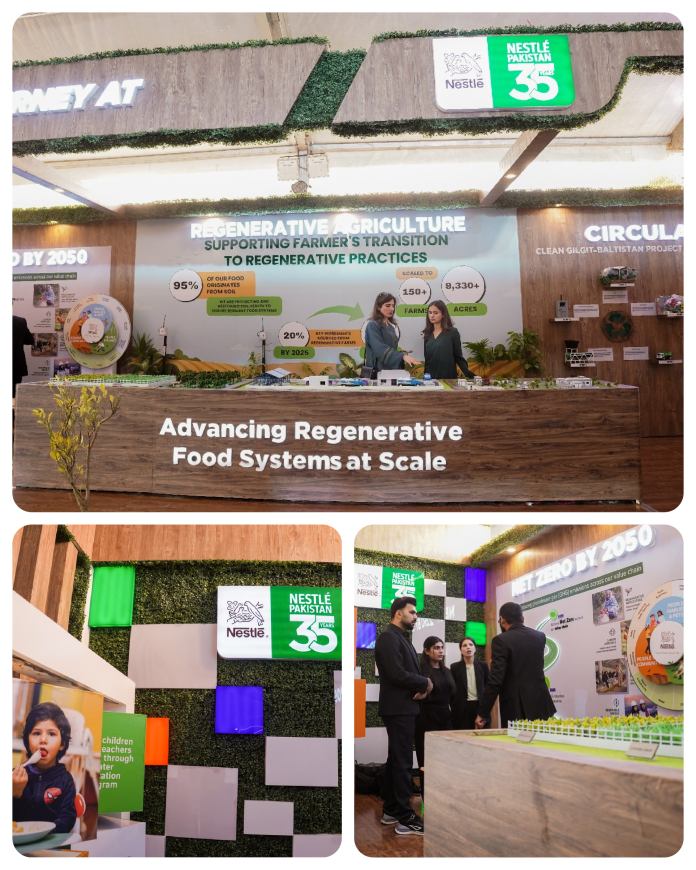Nestlé Pakistan’s efforts towards climate action, sustainability, renewable energy and regenerative agriculture were showcased at the 28th Sustainable Development Conference and Sustainability Investment Expo by Sustainable Development Policy Institute in Islamabad.
“Nestlé Pakistan as part of its global and local obligations, believes in Creating Shared Value for the communities in which it operates,” said Sheikh Waqar Ahmad, Head of Corporate Affairs & Sustainability for Nestlé Pakistan & Afghanistan, adding, “We are committed to be a force for good, and our efforts underscores our commitment to sustainability for the people of Pakistan, as we take significant strides towards finding solutions for climate change and a more sustainable future.”
Nestlé, as part of its efforts to reduce emissions in line with its 2050 Net Zero commitments, as well as the Pakistan government’s UN climate change pledge, earlier invested PKR 2 billion in renewable power and sustainability initiatives, operationalizing around 9.5 MW solar power plants and a biomass boiler.
Nestlé also continued its commitment to reduce its emissions versus 2018 by 20% by 2025, 50% by 2030, and Net Zero by 2050, in line with the UN’s Sustainable Development Goals (SDGs) 13 and 15.
Meanwhile, Nestlé Pakistan’s Clean Gilgit Baltistan Project that focuses on waste management for Gilgit-Baltistan region, was expanded to Askole, 10,000 feet above sea level and Zero Point ahead of the K2 base camp in 2025. This marks adding the fourth compressing and baling machine after those in Gilgit, Hunza and Skardu. This year, the project is expected to facilitate recycling of approximately 4000 tons of plastic waste.
Additionally, 225 benches and bins made from recycled plastic have been installed at prominent tourist spots in the region.
Preserving water resources and regeneration is part of Nestlé’s legacy and under the Caring for Water – Pakistan initiative, drip irrigation has been operational across 243 acres in Punjab and Sindh, while smart soil moisture sensors on 724 acres. “With these efforts, Nestlé is advancing regenerative agriculture across its value chain,” said Waqar Ahmad.
Nestlé also worked closely with its 11 partner schools under the Nestlé for Healthier Kids (N4HK) program to increase nutritional awareness in children. As of 2025, the program has reached out to 2600 teachers and 400,000 children in line with UN SDG 3.
Meanwhile, through the Nestlé-BISP Rural Women Sales Program, in collaboration with Akhuwat, Nestlé is supporting rural women to achieve financial empowerment. The program now has more than 3700 trained sales agents, of which 2100 are Benazir Income Support Program beneficiaries, across 29 districts in Pakistan, in line with UN SDGs 3, 5, 8 and 17.
Nestlé’s presence at the 28th Sustainable Development Conference and Sustainability Investment Expo provides an opportunity for sustainability experts, policy makers, non-profits and civil society to visit and see Nestlé Pakistan’s sustainability journey over the years from 4-7 November 2025.
Nestlé is dedicated to taking collective action with stakeholders to accelerate efforts to protect, renew, and restore the planet and ensure that food systems continue to nourish people for generations to come.


